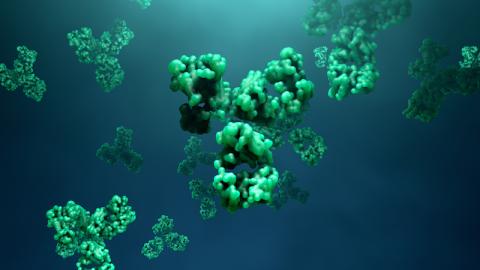
A decrease in protection against infection with COVID-19 over time after a second vaccination dose supports the case for boosters to be given widely, according to research by a team at the University of Oxford.
Using data from the Office for National Statistics COVID-19 Infection Survey, the researchers investigated levels of immunity (in terms of levels of anti-spike antibodies) in 222,493 people who had received a second dose of vaccine, and quantified the impact of dosing interval, age and prior infection on antibody levels and declines in these over time. They published their findings as a preprint (meaning the research is yet to be peer-reviewed).
They found that people of all ages – and regardless of dosing intervals – generated antibodies against SARS-Cov2 following their second dose of vaccine, with the Pfizer vaccine generating higher peak levels of antibodies than the AstraZeneca vaccine. Prior infection significantly increased the life-span of antibodies with both vaccines.
Antibody levels were seen to peak on average 21 days after the first dose, after which they gradually decreased until the second dose. The second dose generated an even higher peak around 21 days later, after which levels declined once more. Peak levels were lower in older people after the first dose but this discrepancy was less after the second dose. Different dosing intervals made little difference to any of the trends observed.
Antibody levels fell faster after the AstraZeneca vaccine, where protection of 67% or more was estimated to last for 2 to 3 months. The same level of protection was estimated to last for 6 to 15 months after two Pfizer doses in those without prior infection. Protection was estimated to last for 1 to 2 years for people who were unvaccinated but had been infected with COVID-19.
People without prior infection who were given AstraZeneca had lower antibody levels after a second dose than those with prior infection after a first dose. In contrast, people without prior infection given Pfizer had higher levels of antibodies after two doses than those with prior infection after one dose. This was especially true of those aged 80 and over.
In addition, the researchers found that up to 7.7% of people did not respond to a first dose of vaccine, but that this dropped to a maximum of 1% after a second dose.
The research team concluded that a third dose of vaccine may be needed to provide the fullest protection, and should be prioritised for people who previously received the AstraZeneca vaccine, as well as for people who are clinically vulnerable to infection and serious illness. They stressed that protection against emerging variants of the virus may require higher levels of antibodies than for those currently in circulation.
